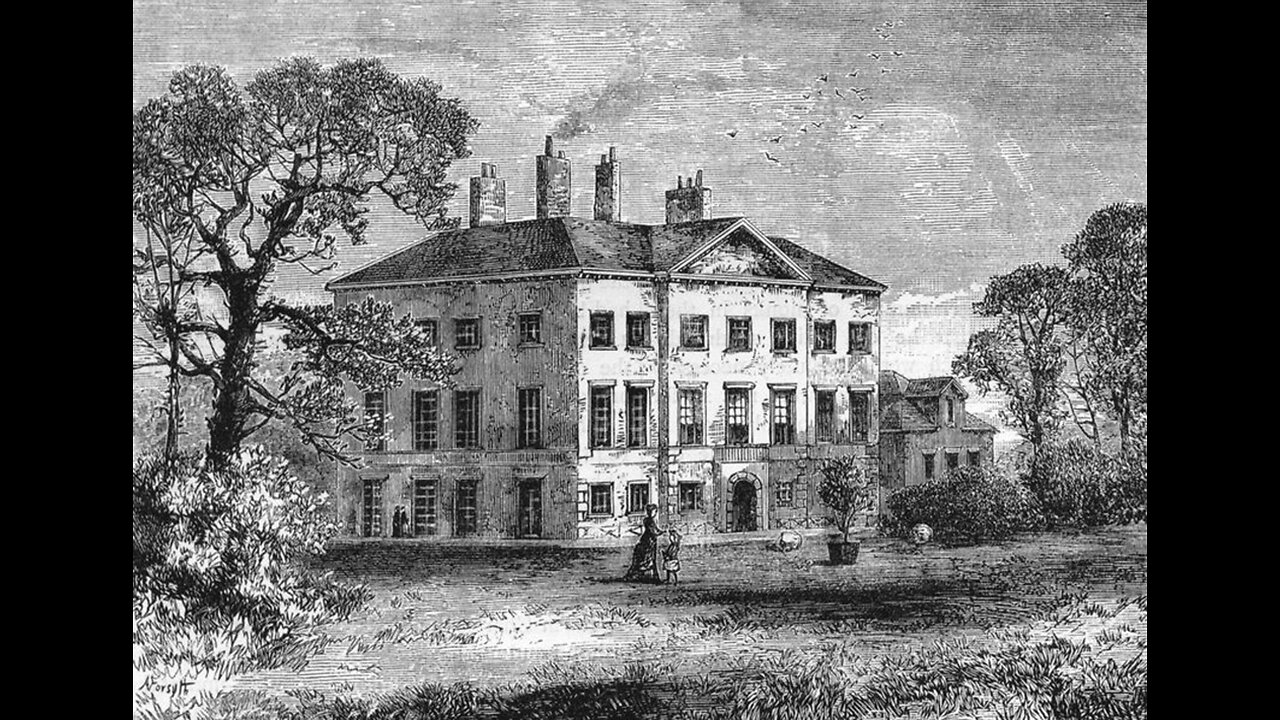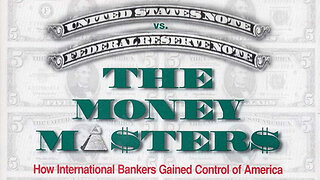Premium Only Content

"The Dover Road" by Arthur Machen
The BBC was founded in 1922, and this story was published I believe in 1936? In the 1930s, no doubt, so the reference to it here works out fine.
4 or 5 degrees Fahrenheit. That's 2.2 to 2.8 Celsius.
Morton Grange - I can find places with this name in Lincolnshire and Durham and Derbyshire, but I can't find a reference to one in Essex. There's another one in Gloucestershire, which is close to the border with Wales and might be where Machen heard the name. So it's a name that definitely exists in the UK, just maybe not in Essex.
He does say 14 or 15 miles northeast of London. If we take "London" here to mean Westminster, as so many of his stories with London locales are specifically Westminster locales, 14 to 15 miles NE of London is still within the M25 London Orbital Motorway. To give you an idea of just how massively London has sprawled out over the past century, that in the 1930s, such a distance was still considered "the country"....
Glamis Castle is a real castle in Scotland. There appears to be a "monster of Glamis", which is presumably what Machen is referring to here, being a child born in 1821 and claimed by the parents to have died in 1821, but others say the child was hideously deformed and survived and lived, but hidden away in the castle never to be seen by outsiders.
Chère reine is French for "Dear Queen". The idea that the name of Charing is derived from the expression "chère reine" is a folk myth related to Queen Eleanor of Castile (wife of King Edward I), who died way back in 1290. In fact, the name Charing is likely to be several centuries older than that, from the Anglo-Saxon word ċerring.
Andrew Lang: given the time frame involved, this is presumably a reference to the Scottish poet, and collector of folk and fairy tales.
Chancery, at the time of this story, would be the Chancery division of the High Court of Justice, dealing with business law, trusts, probate, insolvency, and land law, along with patents and tax.
stretch a point: apparently there are several meanings to the phrase, but the one we are interested in here is: to break the rules, or make an exception, for a good reason
Crookes: William Crookes, a British chemist and physicist and inventor of the Crookes tube. He was for a while also interested in spiritualism.
Markham is a common enough surname, but if I had to make a guess, it'd have to be either Sir Clements Markham (explorer, author, and ultimately president of the Royal Geographic Society) or Sir Albert Hastings Markham (an explorer, author, and officer in the RN). The problem with either candidate is that they both died before the end of WW1, and this story is clearly set after WW1. But there are no other better candidates. Unless it is meant to be a fictional person, which is entirely possible.
diem clausit extremum: he closed his last day, i.e. he died
mortuus sine prole: died without issue
vert a chevron or: heraldric terms. Vert = green, or = gold, you know what a chevron is. So a gold chevron on a green background.
Scotland Yard was founded in 1829.
There doesn't appear to be a "Mackinlay Stuart", at least not one that is sufficiently notable to appear in an internet search. Stuart Mackinlay, but not Mackinlay Stuart. But same thing with Halliday Stuart. Stuart Halliday yields quite a few results, but Hallidy Stuart not a one. So it seems Machen is doing some name reversals here.
antinomy: a contradiction between two beliefs or conclusions that are in themselves reasonable
The picture used is: A view of Copped (or Copt) Hall from the north-east as a wood engraved print by Forsyth for an 1888 book by Edward Walford, published by Cassell & Co Ltd in "Greater London a narrative of its history, its people and its places".
The history of this manor house goes back to King Richard I at the end of teh 12th century! But the building shown here was an 18th century rebuild of the house in the Georgian style. So it's a Georgian style manor house with a long enough history that there would be some far older buildings or structures on the property. Just as is described in the story for Morton Grange. And for bonus points, this is located in Essex! And extremely close to the location described in the story, being 14 miles northeast of Charing Cross!
-
 1:29:31
1:29:31
Glenn Greenwald
9 hours agoGermany's Repressive Speech Crackdown Intensifies; U.S. & Russia Meet in Saudi Arabia and Open Cooperation; Plus: An Amazing Hate Crime in Florida is Buried | SYSTEM UPDATE #408
89.2K54 -

DLDAfterDark
4 hours ago $1.06 earnedDLD Live! What's Your Typical EDC/Civilian Load Out? Guns & Ammo & EDC?
13.9K1 -
 1:30:48
1:30:48
Redacted News
10 hours agoBREAKING! TRUMP AND PUTIN NEARING PEACE BUT EUROPEAN WARMONGERS TRYING TO STOP IT | REDACTED
178K249 -
 52:40
52:40
Candace Show Podcast
11 hours agoSaturday Night Lively: What Were They Thinking? | Candace Ep 148
151K152 -
 3:30:06
3:30:06
Man in America
6 hours agoDocumentary: The Money Masters 'How International Bankers Gained Control of America'
40.2K11 -
 1:10:40
1:10:40
PMG
1 day ago $1.91 earnedTom Hanks Plays a Racist MAGA Supporter On SNL!! UNBELIEVABLE
19.5K3 -
 2:11:29
2:11:29
Adam Does Movies
10 hours ago $1.64 earnedAsk Me Anything - Live!
29.8K1 -
 56:18
56:18
Flyover Conservatives
1 day agoFollow the Money: $4.7 Trillion in Government Fraud EXPOSED!; Flu Shots, Fear & Big Pharma Lies—What They DON’T Want You to Know - Dr. Stella Immanuel | FOC Show
32.5K1 -
 1:16:24
1:16:24
Anthony Rogers
1 day agoEpisode 354 - Current Events, Weather, and Other Clickbait
34.7K2 -
 25:10
25:10
Producer Michael
10 hours agoTHE HOTTEST FRAGRANCES FOR 2025!
35.1K2